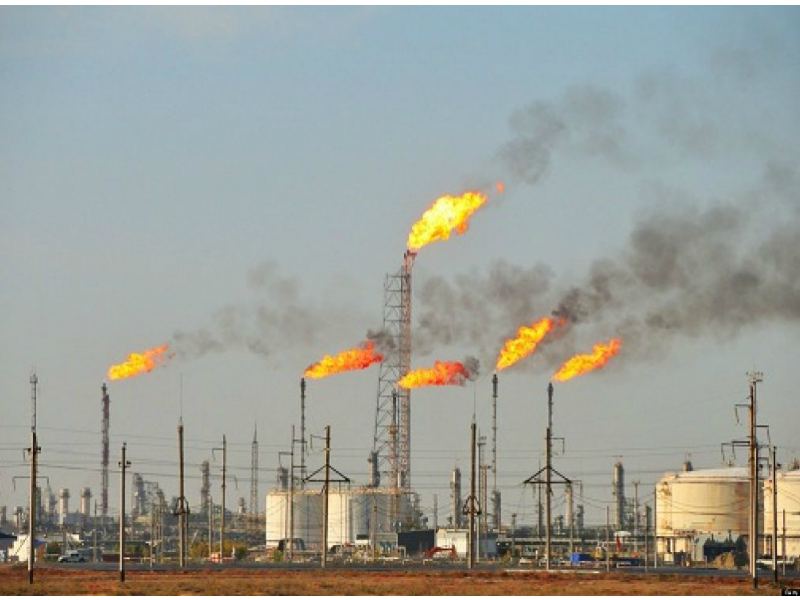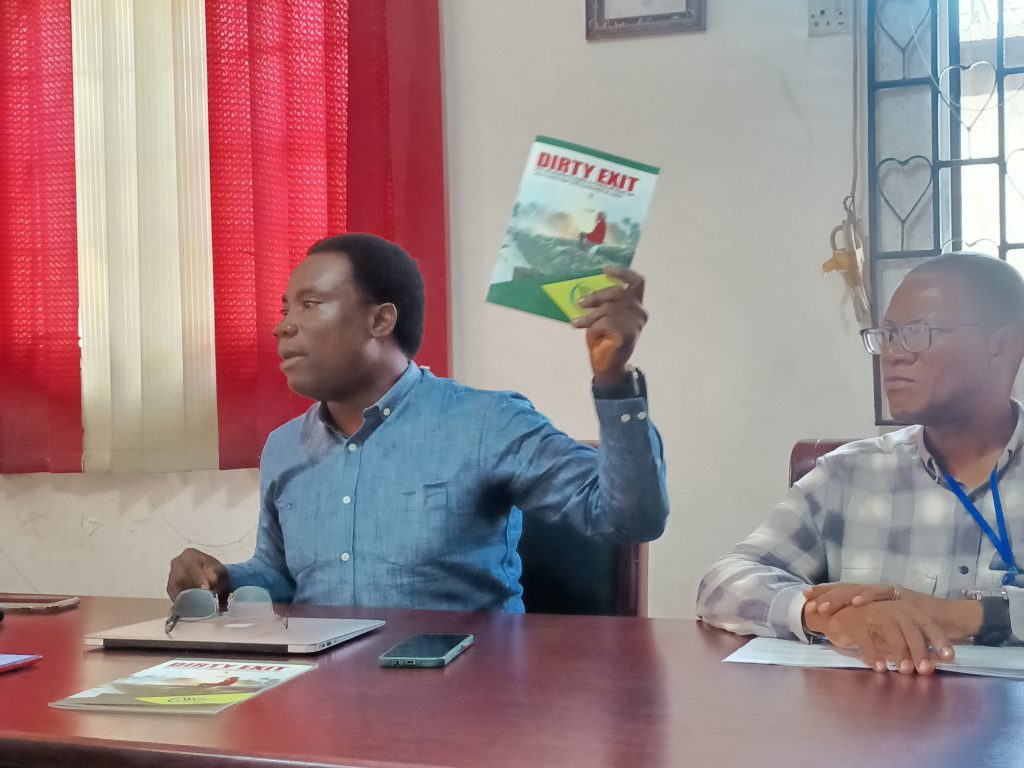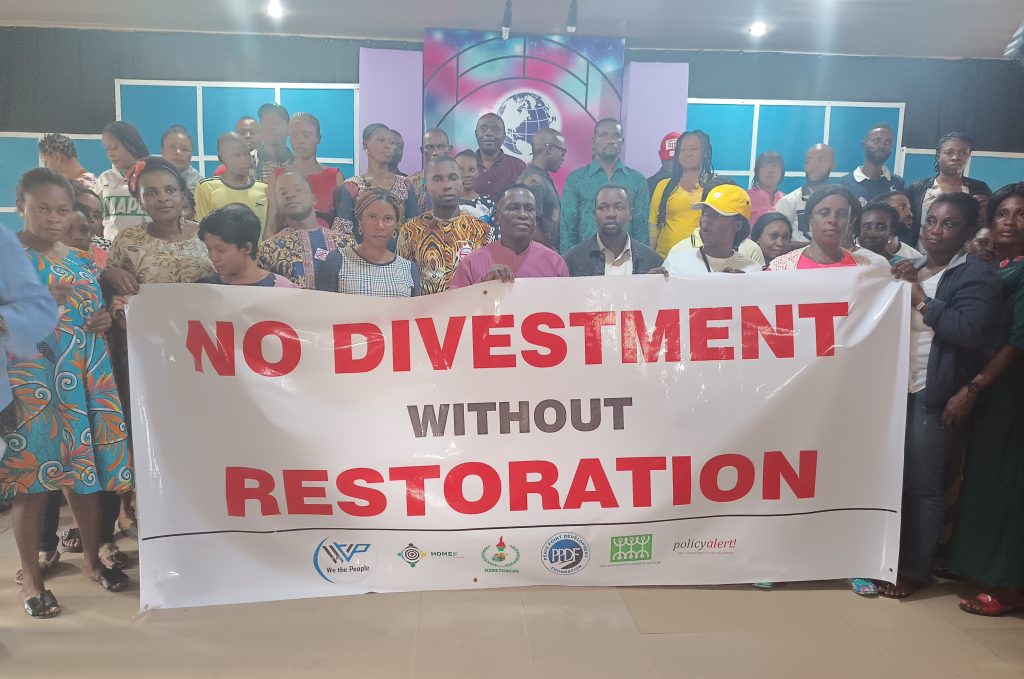Understanding the Motive Behind Transnational Oil Companies Leaving Nigeria

By Ekemini Simon
After about six decades of enormous oil exploration in Nigeria, the transnational oil companies are packing their bags.
Surprisingly, they are leaving at a time the country is opening its doors wider to exploration of more marginal fields.
The Nigerian oil field appears even more ripe for harvesting as the much yearned for Petroleum Industry Act (PIA) has recently come into force. Yet, one wonders, why would a business that has recorded years of economic gains suddenly take to flight when more investment opportunities beckons and the law it contributed significantly to make for a better business environment finally scales through?
The Exodus
The mass departure by some of the world’s top International Oil Companies (IOCs) from the Niger Delta, which has long made Nigeria the largest oil producer in Africa has been christened as divestment. The Oxford Learner’s Dictionary defines divestment as ” the act of selling the shares you have bought in a company or of taking money away from where you have invested it”.
Since 2010, the Anglo-Dutch oil corporation, Shell Petroleum Development Company of Nigeria (SPDC), has commenced selling off several of its stakes in onshore oil fields in the Niger Delta, although quietly.
In its yearly company report for 2014, Shell revealed that it had sold eight Oil Mining Leases (OMLs) in Nigeria between 2010 and 2014. As of 2022, Shell had already sold 50% of its oil assets, according to reports.
Just as Shell, Total Energies, a French multinational oil company started selling off its assets in 2010. The company sold its ownership stake in 11 onshore oil blocks to Nigerian-owned businesses between that time and 2015.
In April 2022, the company had confirmed it was selling its interest in 13 onshore fields and three in shallow water, producing over 20,000 barrels of oil equivalent per day. The sale includes infrastructure such as 3,500 km of pipelines connecting to two key crude export terminals, Bonny and Forcados.
Similarly, in 2019, information surfaced that the United States energy giant, ExxonMobil, had held talks on the sale of some oil and gas fields in Nigeria as the company focuses on new developments in United States shale and Guyana.
In February 2022, the Irving, Texas-based company which operates 106 platforms in Nigeria announced that it was selling its equity interest in its Nigerian Shallow water assets to a domestic company, Seplat Energy. The company’s statement on the sales noted ” When finalized, the sale will include the Mobil Development Nigeria and Mobil Exploration Nigeria equity ownership of Mobil Producing Nigeria Unlimited, which holds a 40% stake in four oil mining licenses, including more than 90 shallow-water and onshore platforms and 300 producing wells.”
The company however said that it will continue with its deep-water operations. “ExxonMobil will maintain a significant deep-water presence in Nigeria, including interests in the Erha, Usan and Bonga developments via Esso Exploration and Production Nigeria Limited and Esso Exploration and Production Nigeria (Deepwater) Limited”, the statement added.
Again, an American multinational energy corporation, Chevron in 2015 sold its 40 percent stake in OMLs 83 and 85. Five years later, the company again sold its stake in OMLs 86 and 88 to Nigerian independent oil company Conoil.
For Agip Oil Company, a subsidiary of Italian-owned Eni SpA, in 2015, news reports surfaced quoting Eni Chief Executive Officer Claudio Descalzi as announcing plans to sell Nigerian assets. About six years later in January 2021, Eni alongside its partners Shell and Total E&P sold 45% of its holdings in OML 17 located in the city of Port Harcourt to Heirs Holdings.
Reason for the Flight: IOCs Tell Their Stories
11 years after quietly selling its assets in Nigeria, Ben van Beurden, Chief Executive Officer of Shell, while speaking at the company’s annual general meeting in May 2021 said Shell is divesting because it can no longer be exposed to the risk of theft and sabotage in the Niger Delta.
“We cannot solve community problems in the Niger Delta; that’s for the Nigerian government perhaps to solve. We can do our best, but at some point in time, we also have to conclude that this is an exposure that doesn’t fit with our risk appetite anymore,” he said.
Similarly, in April 2022, Total’s Chief Executive Officer, Patrick Pouyanne, said “disruption of local communities are sources of great concerns” necessitating the company divestment.
For ExxonMobil, it is the question of priority in investment. Liam Mallon, President, ExxonMobil Upstream Oil and Gas in the sales statement noted “This sale will allow us to prioritize competitively advantaged investments in our strategic assets, and it supports the Nigerian government’s efforts to grow its oil and gas operations.”
Chevron on its part reported that the sales is a move to reshape the company’s “portfolio as it focuses on growing its U.S. shale output.” Also, Eni claims it is divesting peripheral businesses amid a drop in oil prices.
At other times, oil companies have referenced climate change concerns and the need to achieve net zero targets as their motivation for divestment. But are these claims really true?
Claims Interrogated
Very few have interrogated the claims made by the transnational oil companies on the reason for their divestment.
Interestingly, a Non-Governmental Organisation that works for ecological justice in Nigeria’s Niger Delta region, We the People, has questioned the divestment claims, made findings and offered explanation into what it believes is the untold story behind the recent wave of divestment by international oil companies (IOCs) in Nigeria.
In its recent report, ” Dirty Exit”, We the People insists that the claims by the transnational companies are a mere ruse.

The organisation says the exit by the companies is simply a criminal flight designed to escape justice. But how? The chronicling of events as shown by the report gives concern for critical thinking.
The organisation explains that for decades, oil companies have operated recklessly, leaving devastating ecological and social footprints.
The report notes that for many victims, seeking justice in Nigerian courts was never an option as the courts and the Nigerian state have mostly tended to side with oil companies.
The report cites when a Federal High Court ruled on the illegality of gas flaring in 2005 and demanded that Shell produce a strategic plan for ending the practice. Yet, the company did not bother to appeal the judgement; it just ignored it as it has been a common practice among oil companies.
At the outset, the situation was not different from the experience at the Nigerian court when victims of oil company abuses began exploring the option of seeking justice in the home countries of the companies.
Initially, the courts in the IOCs home country held that the parent companies were not liable for infringements committed by their Nigerian subsidiaries. The report cites the ruling in a case brought against Shell in 2008 by four farmers in the Niger Delta over the destruction of their livelihoods on account of spills from Shell’s facilities as a reference point.
A 2013 Dutch lower court decision held that Shell parent company was not legally liable for the abuses carried out by its Nigerian branch.
But this was not to hold sway when the judgment at the lower court was appealed. In 2021, judgement was finally pronounced in favour of the farmers.
But what followed turned the course of history and set the pattern for the wave of divestment that was to immediately follow.
The report explains ” Since that landmark ruling about Shell’s parent company having to answer for the crimes done by their Nigeria branch, there has been a new wave of lawsuits in Nigeria and the home countries of oil companies demanding justice for abuses.
“For most of the communities in the Niger Delta, there is finally a real prospect of holding oil companies accountable for decades of destruction.”
The report insists that the international oil companies are divesting from the Niger Delta mainly because they are concerned about the growing number of people seeking justice.
It explains that the transnational oil companies reckon that selling off their assets located in places where they have committed abuses will technically pass the buck of responsibility to Nigerian firms that are taking over the assets.
Yet, is the liability that huge for the companies that they have to leave behind their commercial successes and take to their heels?
The report answers the question by pointing to the United Nations Environment Programme (UNEP) Report on Ogoniland as a reference point to figure out how much liability the companies are trying to avoid.
Quoting the UNEP report, Dirty Exit noted “The two operators in the region, Nigerian-owned NNPC and Shell, should cover the expense of cleaning up polluted sites in Ogoniland”.
The Dirty Exit report explains that the recommendation of UNEP clearly recognises the principle of the polluter paying for their ecological damages.
Be that as it may, Ogoniland is only a small part of the Niger Delta region, which comprises nine states. So, what happens to other parts of the Niger Delta?
The report answers “Unfortunately, no hydrocarbon impact assessments have been conducted anywhere else in the region. If such an assessment is carried out all over the Niger Delta, it is certain to show mind-boggling hydrocarbon contamination.
“Following the established principle, the outcome will be a demand for each responsible company to commit financially to remediation and restoration activities before they divest.

” A recent Nigerian study found that cleaning up the Niger Delta region would cost more than $50 billion and take at least 50 years. Other estimates are much higher. This is one liability that transnational oil companies do not want to bear.”
The report reiterates that for occupied Niger Delta communities, divestment is a strategy for oil companies to dodge accountability and ecological justice.
It posits that for the companies, the ongoing divestment moves provide an opportunity for companies to abdicate their responsibility for several years of ecocide in the Niger Delta.
The report asserts that as the companies divest from onshore and shallow water oilfields and move further into deep-water exploration, their end game is to move away from the scrutiny of communities and civil society organisations.
The report raises a red flag that for the Nigerian-owned companies taking over the onshore oilfields, they do not have clear provisions for determining who is responsible for remediating historical contamination and addressing related socio-ecological issues.
Yet, why is it important that the controversial issues in the divestment be addressed urgently?
The report answers “Divesting without accountability and restoration will see the emergence of stranded communities, who will be left with 65 years worth of pollution and health hazards to contend with, while the transnational oil companies that caused their calamity move elsewhere for more profits or green-wash themselves as clean energy companies. This is not only unjust, it is criminal. They must be held to account”.
Divesting IOCs Keep Mum over Contending Issues
TheMail Newspaper had sought reactions and clarifications from the divesting oil companies. Questions seeking clarifications were sent via mail to the official mail address of Shell, Total, and Chevron. That of ExxonMobil was sent to the Manager, Public Affairs, Mr Ugochukwu Udeagha while Eni had its mail received by Head of Media Relations, Roberto Albini. Yet, this was not acceded to. Further effort for comment through phone calls to the official phone contact of the companies and their media relations officers was only responded to by Eni’s subsidiary, Agip (Port Harcourt) office which invited the newspaper to their office for the clarification or wait until the mail is responded to.
The newspaper had requested to know each organisation’s reaction to the claims in the Dirty Exit report. It explicitly requested to know if the companies had conducted environmental audits before divesting, and their plans for restoration before divestment.
The newspaper had specifically requested to know from ExxonMobil if they are transferring their N82 billion judgment liability against Ibeno communities to Seplat Energy before divesting.
The way Forward
We the People, has called on the Federal Government to come up with a framework that would guide multinational oil companies that want to disengage from their areas of operation in the region. The organisation stressed that the framework should be developed by a multi stakeholder group including communities and civil society organizations.
The report says the framework should contain a scientifically developed post-hydrocarbon impact assessment report that establishes the exact ecological and livelihood impacts of oil extraction.
The report recommends that the framework should also capture the health audit of people located near extraction sites as well as others exposed to oil contamination and gas flaring.
The report explains that the audit is geared towards unravelling the negative health impacts of exposure to hydrocarbons.
The report adds that the framework should entail a detailed plan and costing for remediating the ecological, livelihood and health impacts of extraction coupled with the establishment of independent frameworks for remediating all identified impacts.
The report further recommends that the federal government should immediately place a moratorium on all oil company divestment in the Niger Delta, pending the ascertaining of issues of community concern.
Will the IOCs see reasons for restoration before divestment? Will the government of Nigeria follow the course of wisdom to act immediately for the interest of its citizens? The answer lies ahead.









